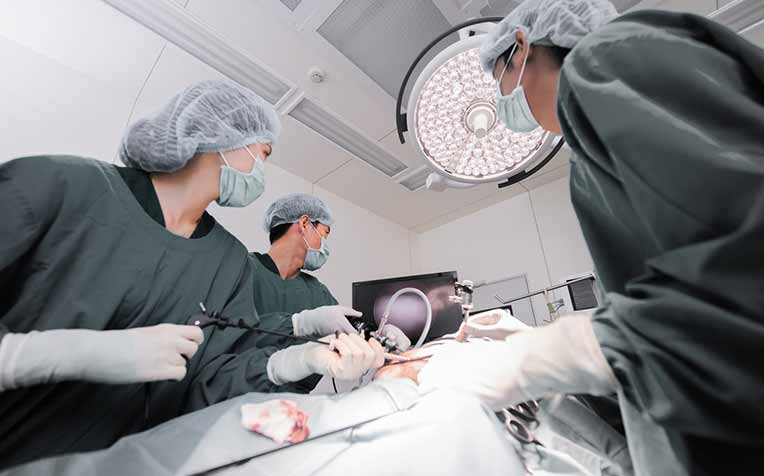HealthXchange will NEVER ask you to transfer money over a call. If in doubt, call the 24/7 ScamShield helpline at 1799, or visit the ScamShield website at www.scamshield.gov.sg.
Appendicitis Treatment with Laparoscopic Surgery (Keyhole Surgery)

Laparoscopic surgery when used to treat appendicitis is virtually scarless and has a shorter recovery time compared to open surgery, but may not be suitable for all patients.
“Appendicitis or inflammation of the appendix warrants immediate surgical attention as the appendix is prone to rupture and this can cause a life-threatening bacterial infection of the body,” says a specialist from the Department of Hepato-pancreato-biliary and Transplant Surgery at Singapore General Hospital (SGH), a member of the SingHealth group.
Appendicitis treatment: Open surgery vs laparoscopic surgery
In acute appendicitis, the appendix needs to be surgically removed, through either open surgery or laparoscopic surgery.
Traditional appendicectomy is an open surgery that involves a single, but longer incision in the lower right side of the abdomen while the less invasive laparoscopic surgery only requires a few small incisions.
Now, with improved instrumentation and more experienced laparoscopic surgeons, the appendix can be removed entirely through the umbilicus as a single site laparoscopic procedure.
The distinct advantage of single-incision laparoscopic surgery is a more cosmetic result (avoiding multiple punctures), and an almost “scarless” result as the wound is less than 2 cm and hidden in the umbilicus.
Under laparoscopic surgery, a thin telescope (laparoscope), which is attached to a video camera outside the body, assists the surgeon in locating the appendix. Special instruments are then inserted into one of the small incisions to remove the appendix.
There is less post-operative pain and recovery is faster in laparoscopic surgery than traditional open appendectomy. The vast majority of patients are discharged within a day or two after laparoscopic surgery.
Though there is less scarring in laparoscopic surgery, it may not be suitable for patients with certain pre-existing medical conditions such as heart disease and chronic obstructive pulmonary disease (COPD). It may also not be suitable for all patients with a ruptured appendix.
If you experience severe lower abdominal pain, don’t dismiss it, cautions Dr Lee. “If it is appendicitis, removing the appendix surgically will eradicate the pain completely. And if it isn’t appendicitis, it is still important to rule out other possible causes of severe abdominal pain such as ovarian cysts or kidney stones,” he explains.
There is an increased adoption of laparoscopic surgery over the last 3 years, since 2009, at SGH, and the hospital performs about 500 appendicectomies annually. While 15 per cent were done laparoscopically in 2009, 40 per cent of patients underwent laparoscopic appendicectomy in 2011.
Contributed by
Related Articles
Public Events
Get the Health Buddy App
© 2025 SingHealth Group. All Rights Reserved.















 Get it on Google Play
Get it on Google Play